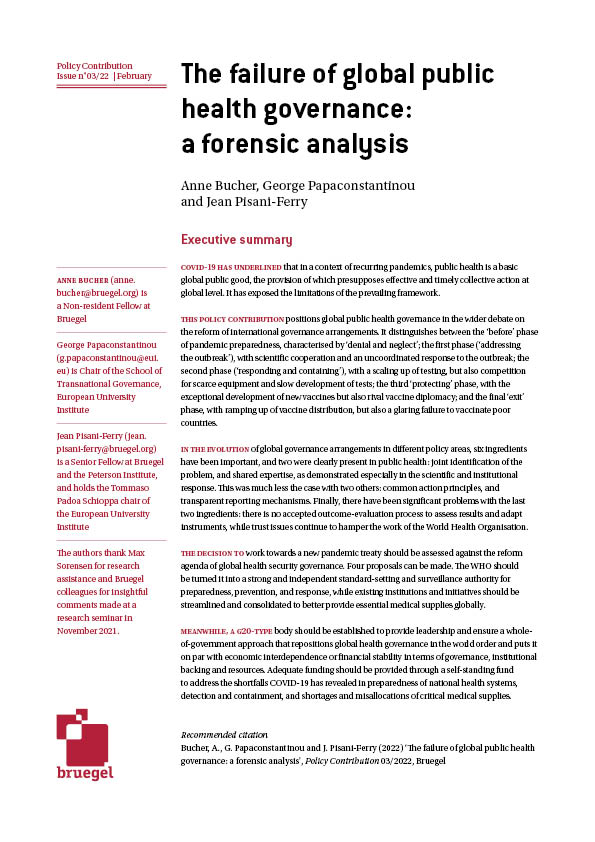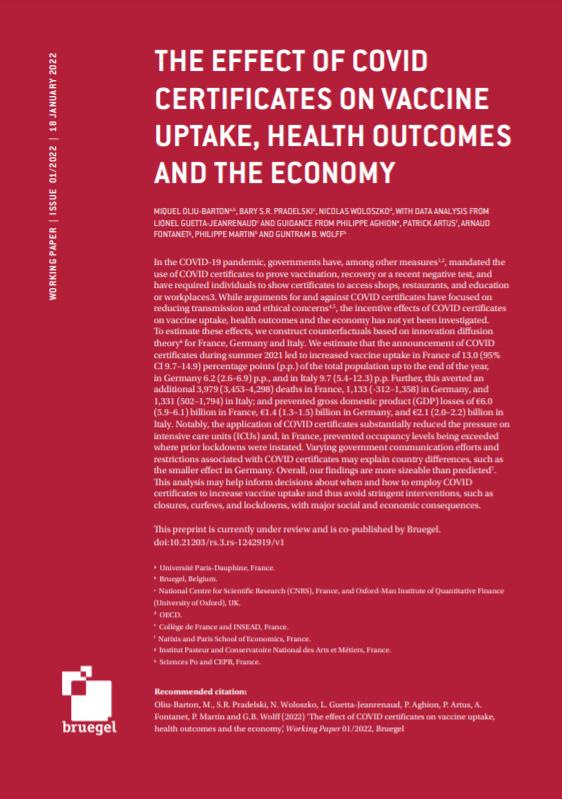Blog Post
Government-guaranteed bank lending six months on
In March and April 2020, European governments announced massive credit support programmes. After an initial surge, take-up appears to be stabilising (with a lag in Italy), despite second wave shocks in some countries. More recent data confirms that fiscal capacity has not visibly constrained national governments in the support they have provided so far.
Credit-support measures, such as loan guarantees, have been one of the main tools to soften the economic blow of COVID-19. Early in the pandemic, European governments deployed unprecedentedly huge credit support to mitigate the liquidity shock facing businesses during lock downs. Concerns about the effects of these programmes quickly followed their announcements.
An often-expressed worry was that less-indebted countries would have more fiscal capacity to help their businesses, and thus unequal support would distort competition in the EU single market, providing an unfair funding advantage to firms in countries with more fiscal space.
Our preliminary findings, published in July, suggested that these concerns had already become somewhat obsolete (relatedly, André Sapir found that low fiscal capacity did not worsen counties’ economic contractions; he concluded that the European Central Bank’s pandemic emergency purchase programme, which was launched in March 2020, has been successful). Firms in less-indebted countries did not appear to disproportionally benefit from national credit support schemes. Updated September numbers confirm these findings: German firms are still collectively the lowest users of the scheme as a share of GDP, whereas by the same yardstick, Spain still tops the chart and Italy is now ranked second (Figure 2).
Figure 1: Government-backed credit support for businesses, € billions
Figure 2: Government-backed credit support for businesses as percent of 2019 GDP
Figures 1 and 2 show that the amount of support provided has gradually levelled off in most of the covered countries, from weekly growth rates of 6%-7% in June, to 1% in September. The exception is Italy, which is still catching up from a late start. But even there commitments are stabilising – growing at a mere 3% per week in September compared to 30% in June.
This stabilisation trend has been apparently unaffected by health-related shocks: there has been no spike in commitments in Spain or France to match the dramatic rise in cases witnessed over the summer. This could indicate that firms were sufficiently buffered or, if not, that most eligible firms had already benefited from the maximum amounts allowed under the scheme. Alternatively, firms might be unwilling or unable to take on more debt.
Our ongoing research project on credit support programmes attempts to clarify some of these trends. We will publish frequent updates of government commitments in this new Bruegel dataset. Please refer to the note accompanying the dataset for more information on our methodology and the programmes included in Figures 1 and 2.
Recommended citation:
Anderson, J., F. Papadia and N. Véron (2020) ‘Government-guaranteed bank lending six months on’, Bruegel Blog, 29 September
Republishing and referencing
Bruegel considers itself a public good and takes no institutional standpoint. Anyone is free to republish and/or quote this post without prior consent. Please provide a full reference, clearly stating Bruegel and the relevant author as the source, and include a prominent hyperlink to the original post.











